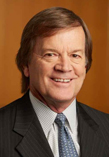By Natalie Posgate and Mark Curriden
(July 25) – Since Toyota officially moved its American corporate headquarters to North Dallas a year ago, it has enjoyed extraordinarily positive media coverage.
The Japanese-owned company brought an estimated 4,000 jobs and hundreds of millions of dollars to the regions GDP. Corporate executives have joined board of Dallas-Fort Worth area charities. And the automakers opened its $1 billion state-of-the-art operation in Plano last year to wide acclaim.
Toyota’s honeymoon in North Texas, however, may be in jeopardy this week as a trial is underway that questions the carmaker’s integrity, corporate culture and the safety of its products.
For the next three weeks, the sixth floor of the Dallas County District Court Courthouse is home to lawyers and witnesses accusing Toyota of putting profits ahead of quality by allegedly designing and manufacturing a flawed vehicle that left two children permanently brain damaged.
Toyota officials unequivocally reject the accusations and say the company is committed to making the safest vehicles on American highways.
Even so, legal experts say the trial marks the first potential threat to Toyota’s unblemished reputation in its new hometown.
Toyota’s Reputation in North Texas
Lawyers, including a few corporate in-house counsel, say the case is about more than just the Reavis family’s dispute for Toyota. It is about the company’s reputation for how it handles everything from managing outside counsel to internal and external communications in these types of high-profile and controversial matters.

“No question, this case is going to be closely watched by the local public and the news media and people are watching to see how Toyota reacts to these horrific allegations,” says former American Airlines General Counsel Gary Kennedy. “This is a very important case for Toyota and its legal department because public perception of Toyota in North Texas is still being developed.
“The importance for Toyota goes well beyond the specific facts,” says Kennedy, who is author of Twelve Years of Turbulence. “Even other Texas businesses are watching to see how Toyota handles this case.”
In the case, Benjamin and Kristi Reavis sued Toyota after the Dallas couple were involved in a rear-end collision on North Central Expressway in 2016 in their 2002 Lexus ES 300 sedan. The Reavises claim the collision caused the front seats of the Lexus to collapse into the backseats, where their children were seated.
The children – then ages three and five – suffered permanent brain damage.
For its part, Toyota officials say they “sympathize with anyone in an accident involving one of our vehicles,” but they are adamant the automaker is “committed to providing its customers with safe and reliable transportation.”
“Regarding the Reavis’ claims, we believe the evidence will show that the injuries sustained were the result of multiple factors specific to this very severe and rare type of accident, not a defect in the design or manufacturing of the 2002 Lexus ES300,” Toyota Senior Corporate Communications Manager Eric Booth told The Texas Lawbook in an email.
“Toyota’s seat design seeks to provide the right balance of safety for the full range of rear-end, frontal and side impact crashes that occur on roadways,” said Booth, who is based in Plano. “We intend to show that the vehicle involved is well-designed and exceeds regulatory requirements and that the seatbacks performed appropriately in this unfortunate accident.”
Both sides hired prominent, high-profile trial lawyers. The Reavises are represented by Frank Branson. Toyota hired Victor Vital of Barnes & Thornburg.
Toyota & Jury Selection
Dallas State District Judge Dale Tillery is about two-thirds of the way through jury selection in the Reavis’s case. A handful of potential jurors admitted they have friends of neighbors who work for Toyota. Even more said they own Toyotas. A few said they have been in accidents in their Toyota and survived safe and sound.

“The defendant is a significant employer in the metroplex and I think the plaintiffs are going to have to do a really good job to ensure they’re covering the waterfront to make sure there’s no relationship between any juror and a Toyota company, or there’s not someone employed by Toyota, or someone’s a big vendor to Toyota,” says Dallas trial attorney Michael Gardner at Gardner Haas.
Randy Johnston, a partner at Johnston Tobey Baruch, says that Toyota being newly headquartered in North Dallas is an issue.
“Because Toyota either now does or ultimately will employ a lot of people in this area you have to deal with that,” Johnston says. “They’re a major employer in area, but Dallas is so diverse in its economy that is not like Toyota drives the economy of the town. Both sides will have to deal with that.
“I think it would be a big mistake for Toyota to assume that because they are the new pretty girl in town that they are entitled to jurors who will give them some epic consideration because they’re hiring a bunch of people,” he says. “I predict Victor will not hint at even trying that card.”

Both sides certainly had challenges choosing enough jurors who were unbiased one way or the other. After a nearly 12-hour day, Judge Tillery sent home the pool of 71 jurors late Tuesday night. Because the lawyers only could agree on seven to select, they will conduct a second round of voir dire Thursday with a new pool to come up with the five remaining people needed for a full jury.
Kennedy and other general counsel say that Toyota needs to be aware that a high-profile case like this will be in the news media and that the media coverage will reach its North Texas employees.
“Internal communications for Toyota are critical in this situation,” Kennedy says. “Toyota employees are its primary ambassadors to the local community and the employees need to be informed about what is happening and not be surprised about allegations in the news media first.”
Toyota officials say that the company being headquartered in DFW does not impact how it approaches this litigation.
“We are proud to be a member of the North Texas community and to call Plano our home,” Booth said. “When faced with product liability claims, regardless of where the claims are brought, we work to address the disputes in good faith.”
